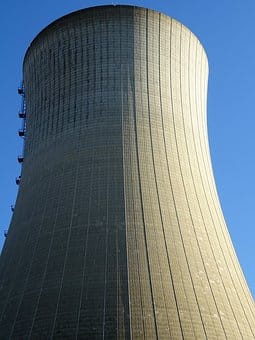FERC Rejects Proposal to Increase Co-Located Load Capacity at Talen’s Nuclear Power Plant

The Federal Energy Regulatory Commission on Nov. 1 issued an order rejecting amendments to an interconnection service agreement between PJM Interconnection, Talen Energy, and PPL Electric Utilities that would have increased co-located load capacity at Talen’s Susquehanna nuclear plant to power an Amazon data center. The proposal sought to expand the capacity from 300 to 480 megawatts but was turned down due to concerns over grid reliability and cost implications.
The order comes as FERC is examining issues around the co-location of large loads at generating facilities. At a technical conference held on Nov. 1, the commission discussed issues such as various co-location configuration options, impacts that these configurations may have on reliability and resource adequacy, and cost allocation of any benefits that large co-located loads receive from the transmission system.
Chairman Willie Phillips dissented, calling the decision “a step backward for both electric reliability and national security.” Chairman Phillips noted that the proposed agreement represents a “first of its kind” co-located load configuration that “presents precisely the sort of specific reliability concerns, novel legal issues, and other unique factors that should have justified the filing of a non-conforming interconnection agreement.”
In a concurring statement Commissioner Mark Christie pointed out that “co-location arrangements of the type presented here present an array of complicated, nuanced and multifaceted issues, which collectively could have huge ramifications for both grid reliability and consumer costs.”
Talen Energy, the parent company of Susquehanna Nuclear LLC, responded to the commission’s ruling, stating that the order could stall economic development in states like Pennsylvania, Ohio, and New Jersey. The company said that the co-location arrangement is part of the solution to issues raised in FERC’s technical conference and emphasized that it “brings service to the customer quickly and without expensive transmission upgrades necessary to serve large-load demand.” The direct-connect approach is one of several commercial solutions that Talen is exploring as it continues to pursue approval of the amended agreement.
The 2,520 MW Susquehanna nuclear facility in Luzerne County, Pennsylvania, consists of two 1,260 MW units interconnected to the PJM transmission system. The commission approved the first interconnection service agreement filed by PJM in 2015.
In June 2024, the grid operator PJM filed an amended interconnection service agreement to increase the co-located load capacity of the Susquehanna plant, allowing an Amazon data center to meet higher electricity demands. The current agreement permits the data center to access 300 MW of co-located load and can continue this access despite the rejection of the amended agreement.
According to the filing, the amended agreement included several provisions to ensure that the co-located load does not take power from the grid and affect grid reliability. However, these provisions failed to quell the commission’s concerns that diverting large amounts of power from the grid could lead to a spike in demand and electricity prices.
As data centers continue to increase electricity consumption, utility companies are looking into new solutions to meet this increased demand without affecting regional grid reliability. In May, the commission released a summer assessment of electricity demand across the U.S., where the increased demand compared to previous years was attributed to new data centers.
EnerKnol Pulses like this one are powered by the EnerKnol Platform—the first comprehensive database for real-time energy policy tracking. Sign up for a free trial below for access to key regulatory data and deep industry insights across the energy spectrum.
ACCESS FREE TRIAL